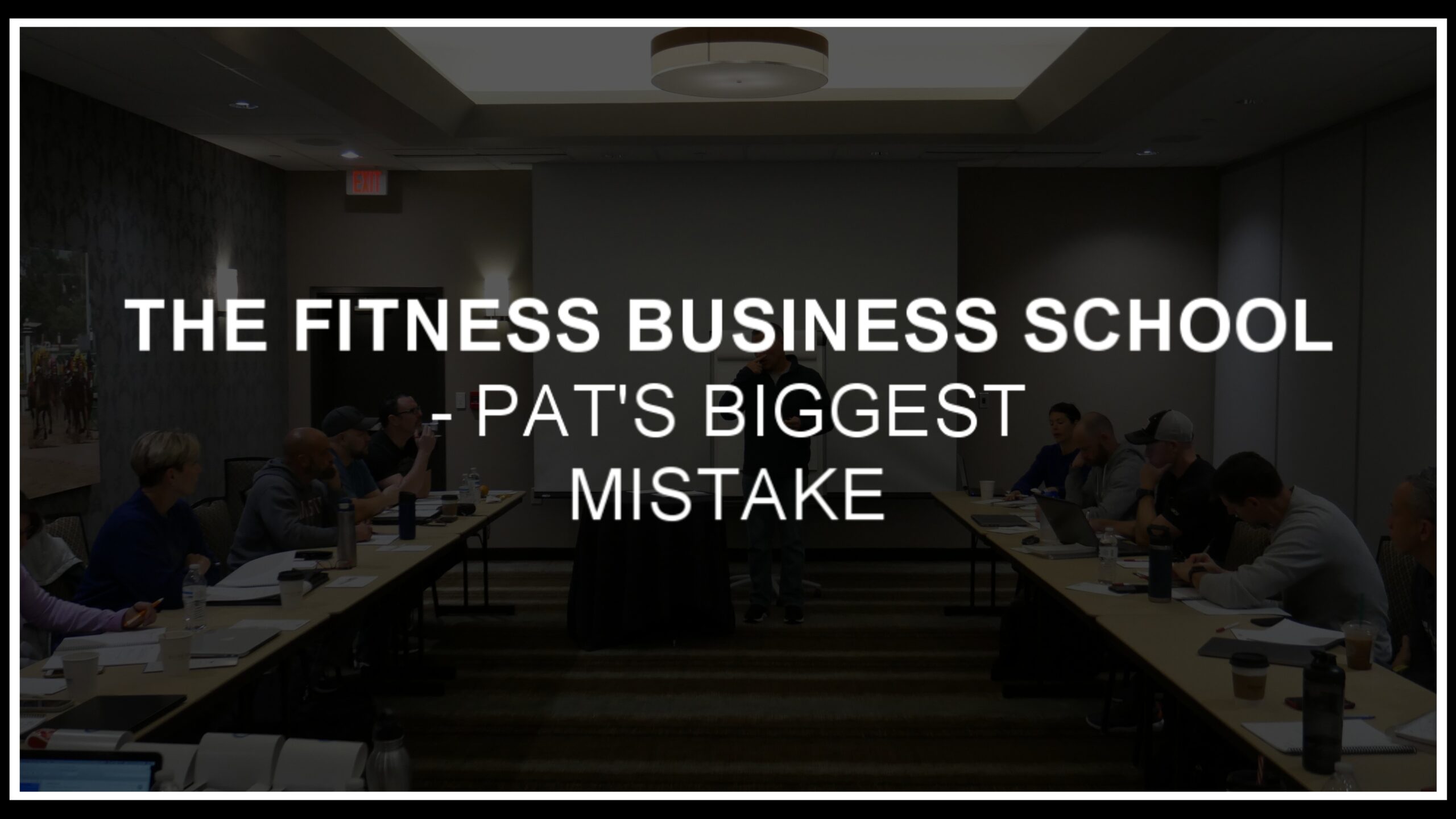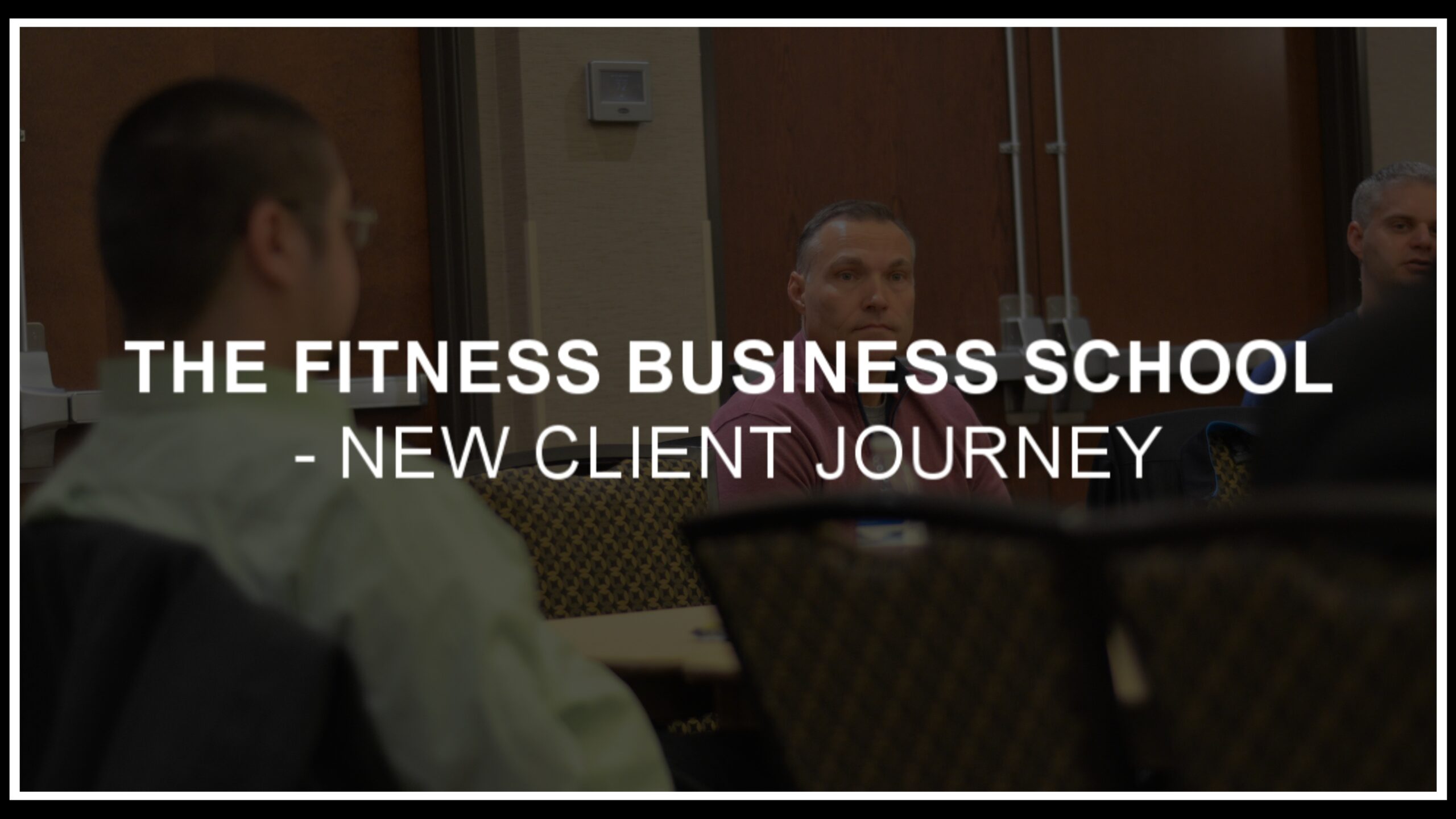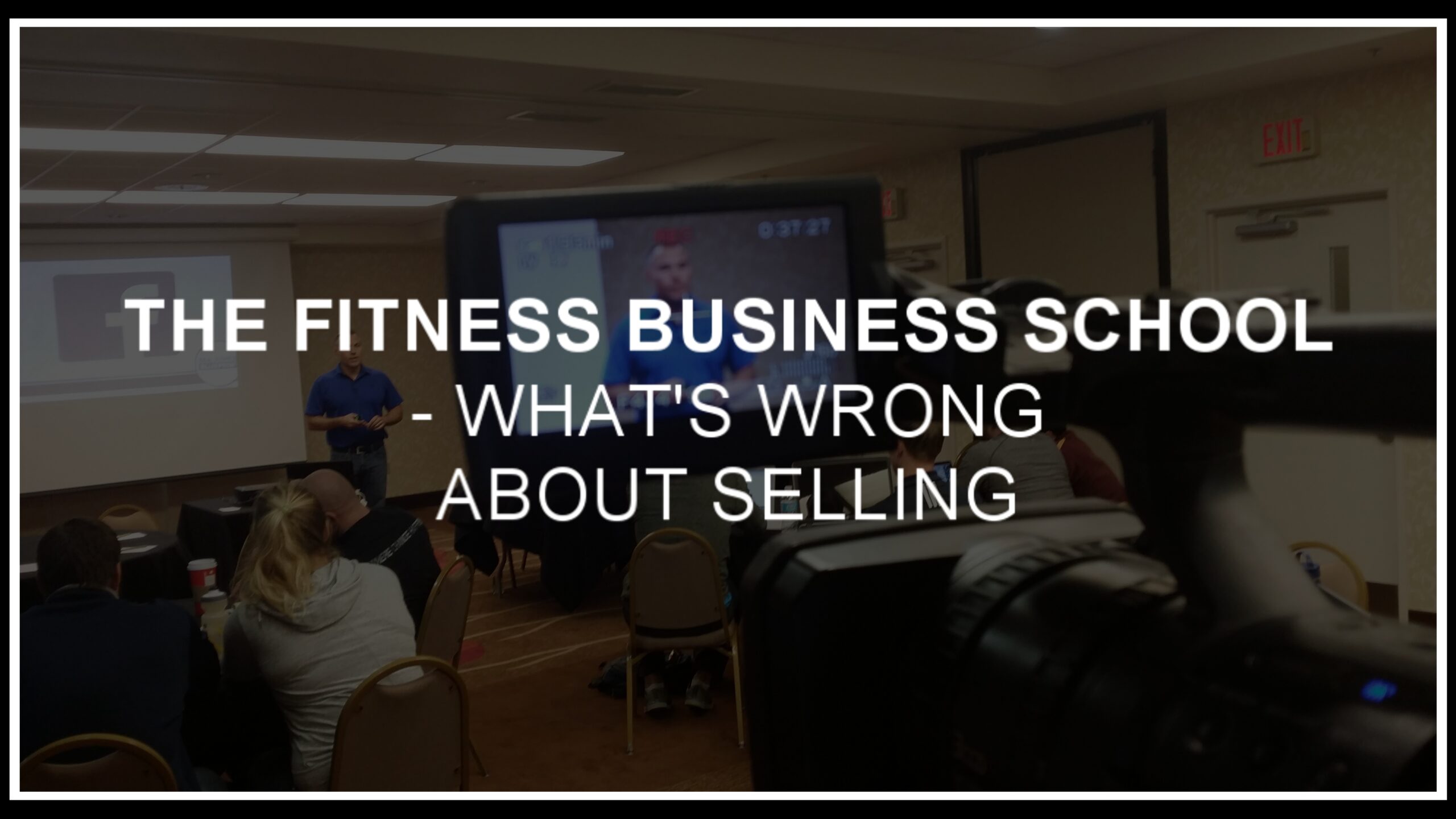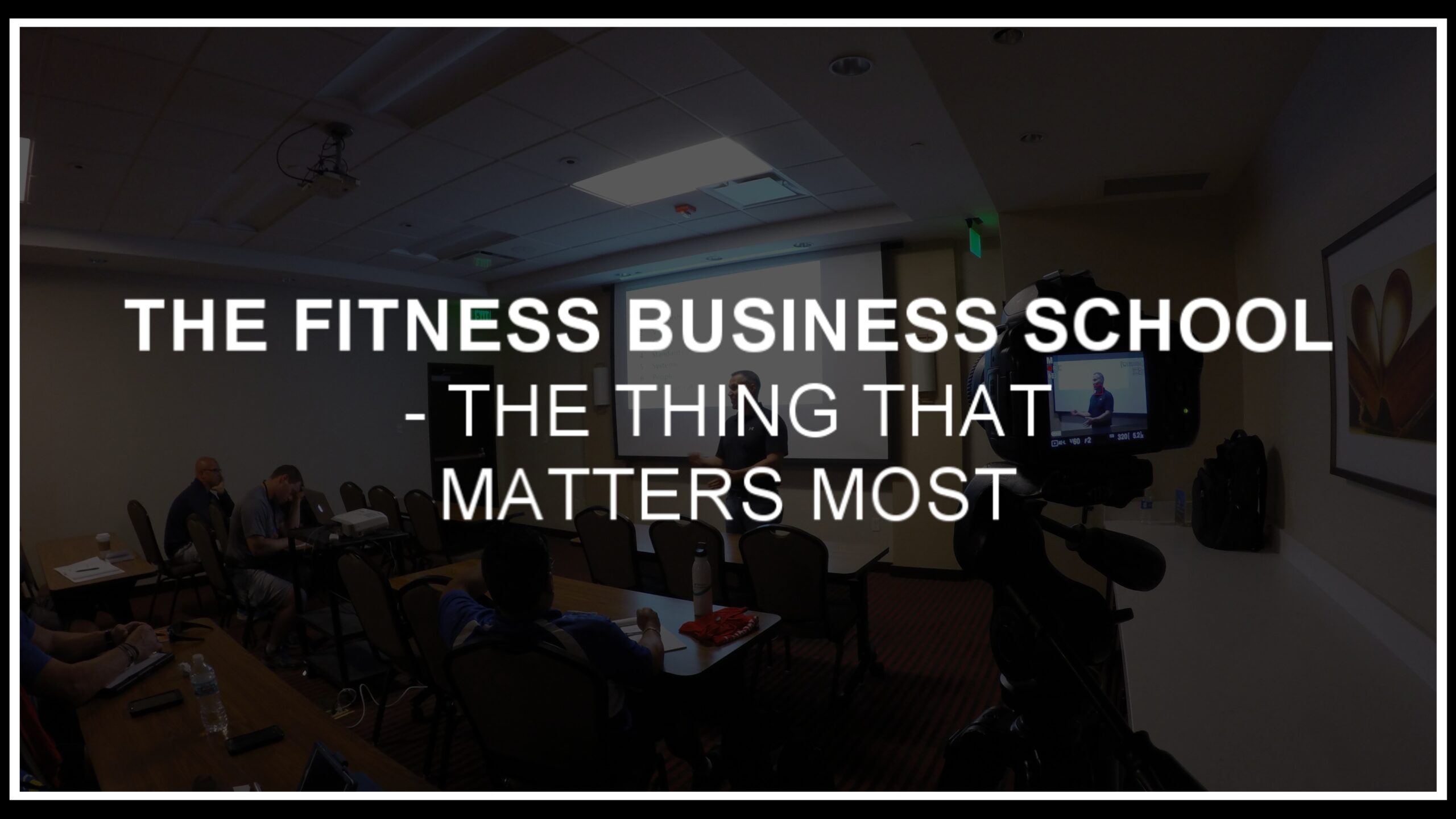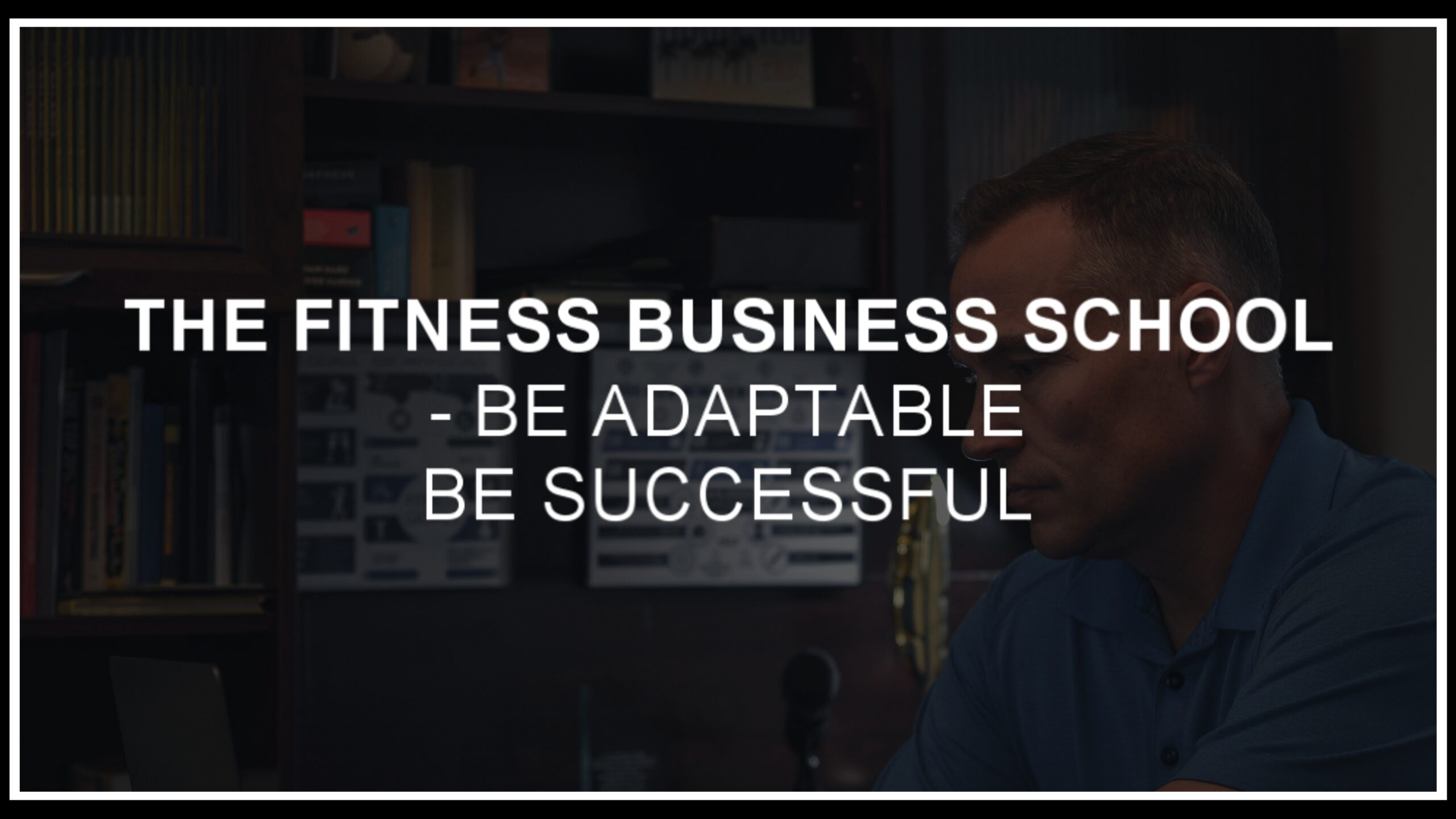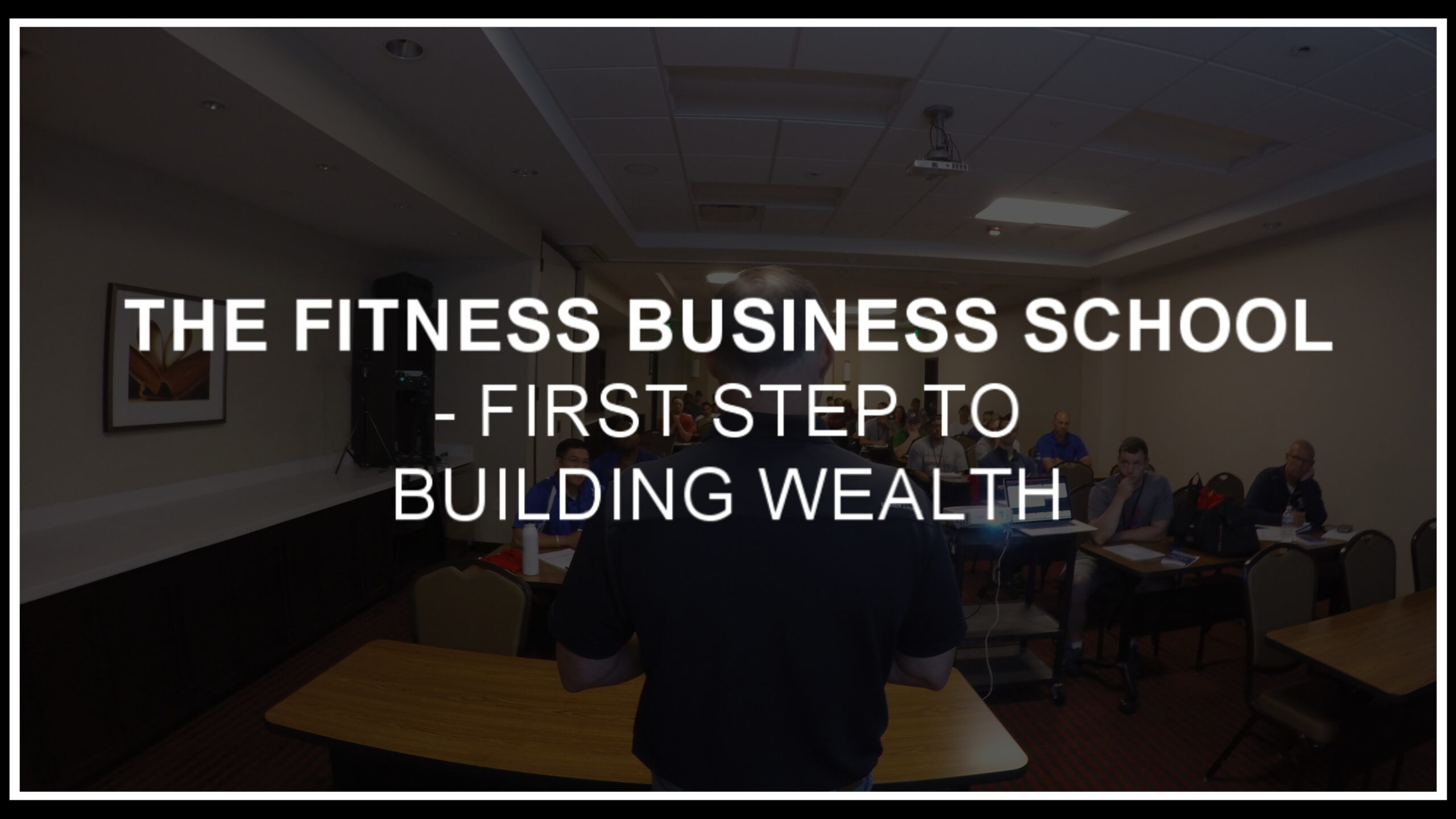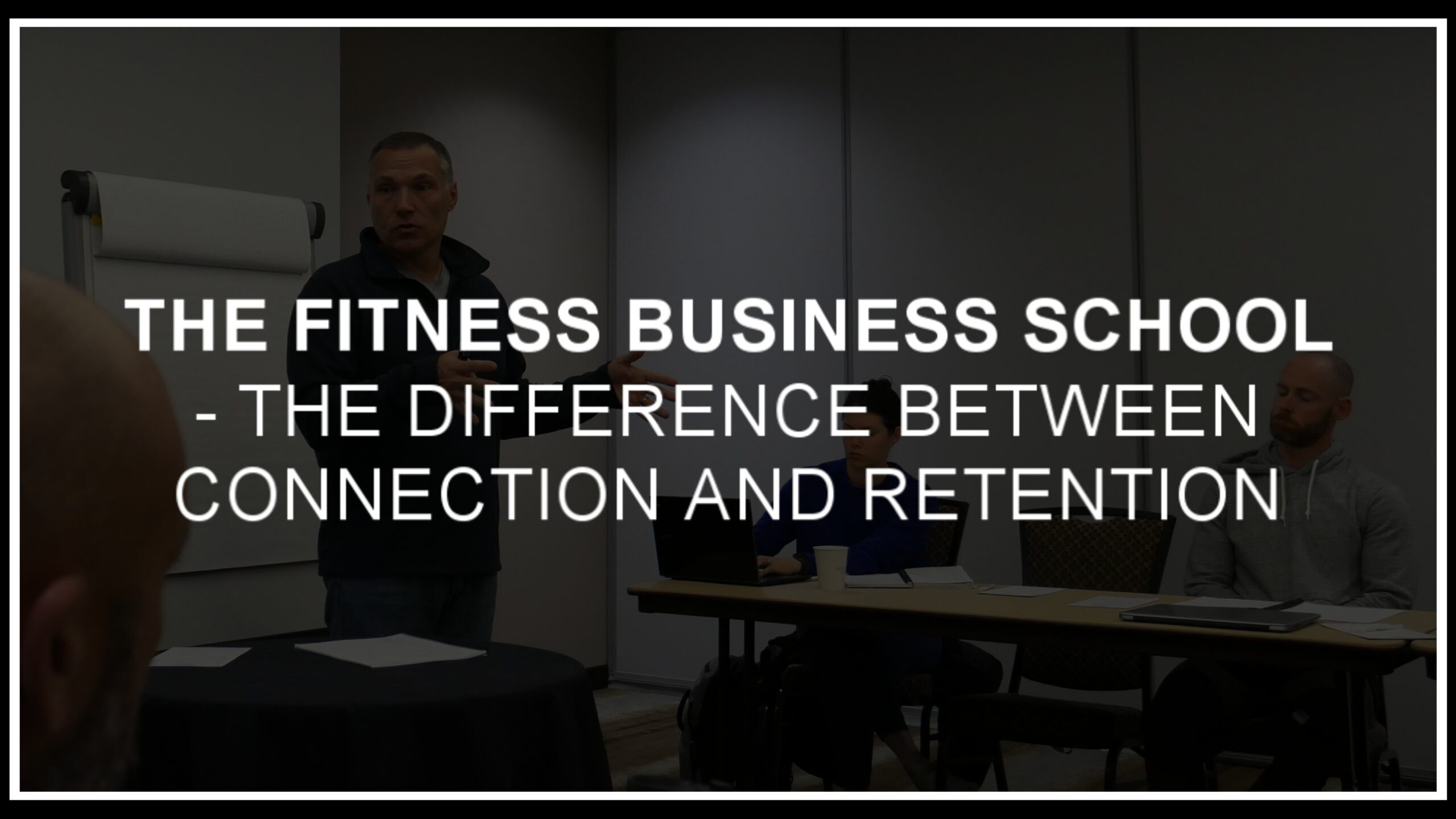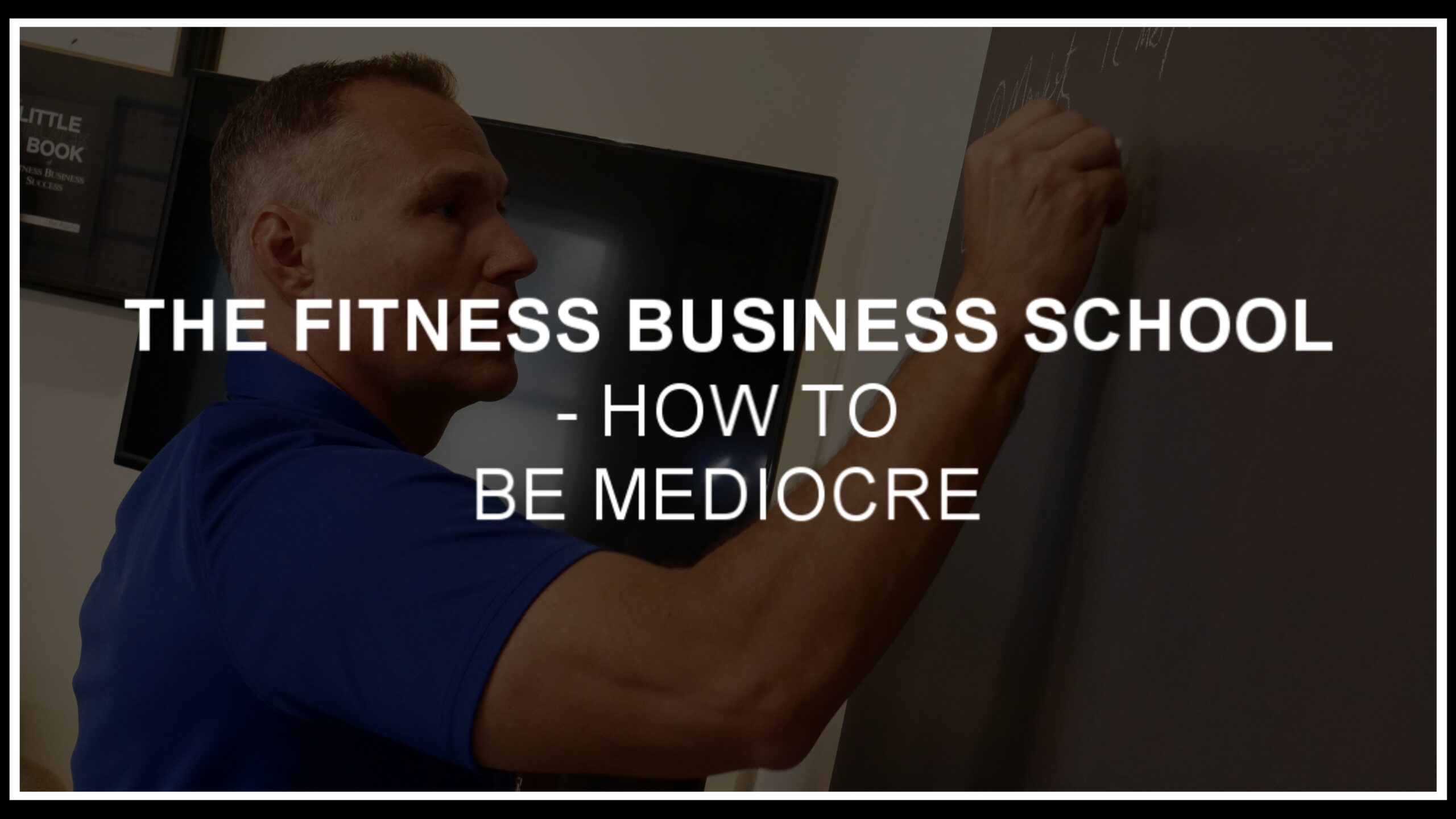Show Notes
For More Information, check out: EricCressey.com/
P.S. – 6-Weeks of Coaching…Free.
Get a surge of new clients and revenue over the next 6 Weeks with ZERO FEE and no obligation to continue?
If you’re a current business owner who wants to add 50K or more in annual revenue over the next 12 month, you can Test Drive our coaching program for 6 Weeks with no fee or even an obligation to continue as a way to demonstrate how we can help you grow your business.
No strings attached. No obligation. You get our best coaching & tools…and hopefully, you’ll love it enough that you want to keep working together.
Would you be interested in discussing?
If so, email me here with ‘interested’ in subject line and we’ll set up a chat.
Full Transcript
Hey everybody, Pat Rigsby here. And today I have a special guest. I have my good friend, Eric Cressey of Cressey Sports Performance and the New York Yankees on board. And just as we did last year we’ve spent a little bit of time together today doing a recap of the previous year and some forecasting of what’s to come. So if you’d like a peek behind the curtain in what’s happening in the sports performance world, stay tuned.
Welcome to The Fitness Business School podcast – the show for fitness business owners who want to grow their income, increase their impact and improve their lifestyle. Be sure to listen til the end of this episode, because we have a brand new special offer exclusive for listeners. So stay tuned.
Last year, about this time we, we connected and kind of did a recap of the, the, the pandemic year. And you talked the things that you experienced and the things you learned. So I thought it might be cool to reconnect and just see how 2021 was for you in, in, in business and you know, how your business evolved. And I’m sure we can go a million different ways with this, but I, I guess I’ll just start with a, kind of a, a layup type question. How was business in 2021 for you? It was, it was still very good.
And first off, thanks for having me again. It’s was good to catch up. You know, I think where we were interesting was, you know, in 2020, a lot of people flocked to the state of Florida, you know, where our second facility opened up. So it was, it was kind of an economic you know, boom, just because of the nature of a lot of people going to wherever, you know, they could actually play baseball. A lot of people went to warm weather. You know, obviously there were, there were tons of social circumstances that led to, you know, people leaving certain states and going to others in Florida was the one that, you know, us, I heard they were, they were adding a thousand new residents per day. So you know, that certainly, you know, this out, we also, in 2020, we, we benefited economically from the fact that there was no minor league baseball season. There was no Ivy league season. There was no Cape Cod baseball league. You know, so there was a lot of baseball that didn’t get played. So we were able to kind of fill in the, the gap there because we had the, the stadium field right next to us. We had the ability to do a lot of development stuff. And, you know, what was honestly kind of cool about it is we had, you know, six or seven guys that, that made major league debuts here in 2021 who were guys that kinda like went off the grid, just trained like crazy with us. You know, they had, they’d always been in baseball and never had like the, the lengthy long term, you know, continuity that they needed to really develop. So, you know, was cool. Some seeing some of these guys who went from double a, to the big leagues and added, you know, three or four miles an hour you know, and, and because of some of like the, the COVID related call ups, you know, it became a little bit easier to get a big league baby this year. So it actually had its, its blessings.
I’d like to say that we’re past the pandemic, but I think we’re on about like year two and a half of, of trying to flatten the curve. But you know, thus far 2021 and we just wrapped it up was a, was another big year of growth for us. And, and I think we’re, we’re curious to see how 20, 22 plays out if it’s, you know, a little bit back to some semblance of normalcy. You know, because we really don’t know what normal is in our new facility, because we moved in in December of 2019. And the second we finished that off season, the, the pandemic started and all the guys came right back and, you know, we basically ran professional baseball in our, in our backyards for the next, you know, six months. Well, I, I think that’s a, a really cool place to start because it just speaks to you being adaptable to the circumstances at hand.
And, you know, I, I think time and time again, throughout the, the kind of turbulence we’ve dealt with for the past couple years, the, the people who’ve done better, or the people who who’ve kind of surveyed the landscape, it actually exists and not like it used to exist, or they wish it existed and they’ve made it the most of it, whether it be training people online, if that was the only hand they had to play or integrating more nutrition coaching or accountability or changing their model. So they could to create, you know, more distance between people in a facility. And I, I mean, you guys had a great year playing off the fact that, you know, the, the people that you typically serve were able to, to spend time there during a season that they aren’t normally there.
Yeah. And I think, you know, to honest, even beyond just like the, the, the dollars and cents of it I actually think from a, like a, a community standpoint, it strengthened a lot of the relationships. You know, all those athletes saw us, like, it wasn’t easy to keep this going. Like my, we joked, my wife was like general manager, director of baseball, operations, director of human resources, everything in imaginable. And you know, I, I think a lot of ’em, you know, saw us hustling and it, it really brought, you know, like we joke about the, you know, CSV family has always been our hashtag, but it really was that you know, like I, I still hear people kind of like, you know, not just like, even joking about like, you know, the, the lifts, like during the pandemic, when they’re waiting for the season to start, but even, you know, some of the players that, that participated in some of our, like, you know, June baseball games, which were kinda like storied on, you know, the internet is the only, you know, baseball games that were played that no one ever knew about.
And a lot of the guys showed up and were like, Hey, I, you know, our hitters were like, everything looked like beach balls when I showed up and nobody else had seen live pitching for a couple months. And so it’s, it’s, it’s actually a lot of really cool, you know, kinda like you, you look back on, you know, I always joke with Pete about like laying down flooring in our first facility and, you know, blisters and being exhausted and all that stuff, you look back on it fondly, even though it kind of was really, really hard in the short term. Yeah, no, I definitely understand where you’re coming from there. So so, so that was kind of the, the evolution of what was happening in Florida. How are, how are things in Massachusetts? Yeah. Mass is different mass at our best year ever as well, which was, was interesting because we did, there was a correction, obviously in 2020 with how you know, things really you know, were, were shut down out there for much longer than they were elsewhere. I wanna say we were closed down close between 12 and 16 weeks when all was said and done in 2020. And, you know, getting back to, you know, a little bit more normalcy, it was never really closed down in 2021.
So we were able to kind of like get back to, you know, doing what we do. And you know, I think where we were limited a little bit in terms of some of our traditional stuff, is we, we just don’t get nearly as many out of town folks. And it was, it had less to do with, I think people wondering whether it was safe or not. It had more to do with a lot of people were on the fence about putting down deposits for our summer programs, just cause they weren’t sure summer baseball leagues were gonna happen or not. So that, that stuff I think, you know, impacted us, you know, somewhat unfavorably, but you know, when all of a said and done it actually turned out to be our best year ever up there. So it’s a big, you know, credit to, you know, Pete and John and Ethan and Josh and Dakota and Jordan, all those guys up there who do such a good job. Very cool. So I don’t know, you know, I, I think most, anybody would listen to this clearly knows who you are, but I don’t know if they might understand the difference between the two locations, maybe the mix of services. Can you share a little bit about that? Yeah, for sure. So, you know, maybe as a background, so we opened crisis support performance in, in 2007, never intending to be like a baseball destination.
We did open up inside of a baseball training facility largely just because it was convenient. One of our, our clients’ father’s had a facility, we sub out some space and we kind of quickly, maybe not so quickly stumbled onto this baseball niche. And, and it grew by leaps and mounds cause it was a, a very underserved population. And what we found was we were getting more of these, you know, high school and college guys who became pro guys and our pro clientele was growing and we were doing a good job for ’em and they were, you know, they were advanced and they were getting the big leagues. And, and what we found was a lot of these guys that were, you know, with us and really dev out and, you know, and working, you know, on our programs and things like that, you know, they get to the big leagues and then they want to move someplace warm weather, or, you know, the, you know, the off seasons would get shorter up there because the season’s a month longer. And then they report, you know, several weeks earlier on the front end. So we started to investigate this idea of, of opening up a, a second location, warm weather to kind of expand the brand. And, you know, we landed in Jupi Florida and it’s since been moved to Palm beach gardens, Florida. So there, there are two facilities, both of ’em offer strand edition service. Both of them offer, you know, pitching development. In-House, there’s physical therapy, massage therapy at both, probably the only, you know, major difference between the two weather aside is that our, our Palm beach gardens location also, you know, is a, is a really good opportunity for hitters to develop. In Massachusetts, there are, you know, cages and things like that in the building. They’re a little down the hall here. You literally walk outside the door and we’ve got, you know, four cages right there. Guys can hit on fields. We’ve got 80 yards of turf. So just from like a complete baseball development experience Florida offers a lot of amenities where folks can do everything, you know, in person you not have to drive all recreation. And, and it took a long time to get there. But you know, I, I think big picture as well is a lot of the, the success that we’ve had in the baseball community has given rise to more, you know, opportunities, whether it’s me obviously working with the Yankees or, you know, doing consulting in the baseball realm, speaking product development, door ships, all that different stuff. So, you know, I look at it much more as like a, a brand now, you know, as opposed to just two gyms just because there are so many related entities you know, we’re recording this on, on January 11th, we saw over 300 people at our Florida facility today across, I think it was like 188 came into train. You know, and that ranges from SA Youngs MVPs all the way down to like our foundations class with, you know, a bunch of nine year olds coming in from like five 30 to six 30. But that also includes, you know, physical therapy patients that are coming in to CPTs manual therapy sessions. My business partner, Shane is, is like book solid two weeks out and then hitting guys out in the cage, pitching stuff you know, Tuesdays and Fridays, this time of year, you’ll see, you know, 40 bullpens, you know, and the schedule has to go out. So it’s, it’s, it’s really interesting. Like people see it on Instagram and, you know, it’s all like this Wellow machine. And we actually had a family that came down from Ohio two weeks ago and the mom and dad were kind in the office while their, their 16 year old son was, you know, a one time consult the kind of training for four or five days. And they were just like stunned. And how it they’re like your wife is a rockstar. I’m like, yes, she is very much the one that holds this all together. So it’s, you know, it’s a staff of over 20 now it’s facilities, it’s a lot of different moving parts and having to, you know, where it’s different is like in most industries in the gym field, like, you know, you, you have your own online scheduler and you, you book it, you come in, you take your 8:00 AM bootcamp. You’re done at nine. You know, you say goodbye and we’ll see you on Wednesday. Like for us, it’s, it’s actually kind of like this, you know, it’s like a Jenga stack where right. You’re gonna come in and you’re gonna warm up. Then you’re gonna go out and play catch. Then you might go to hit, oh, and you’re a catcher. You’re gonna do some catching defense. Oh, you gotta catch three bullpens and you’re gonna come back lift afterwards. So there’s always like this, you know, , there’s always more than one thing that you have to train on a given day, and then you mix some physical therapy patients.
We also try to be a little bit selective about, you know, who comes in with our, when our big dogs are there. So, you know, kind of our, our eight 30 to noon tends to be very heavy on the major league side of things. A lot of our, you know, higher notoriety clients, you know, a lot of ’em will drop their kids off at school and come right in afterwards. So you wanna be careful about not having, you know, a bunch of like 13 year old fanboy come in at the same time as some of them. So there’s there’s just so many you know, directions that you have to look on a daily basis that, you know, it’s fun, but at the same time, it’s, it’s gotten much, much bigger than we ever imagined. So you kind of spoke to this becoming a, a brand. And I know before we started reporting kind of touched on the fact that everybody sees 20, 20, 21, 20 22 Cressey sport performance. And they don’t know a lot about yeah. 20 or 2007 mm-hmm version of this. And I, I mean, I’m sure we could spend 10 episodes talk about it, but what, what would be a couple of the things that you think allowed you guys to go from the 2007 version of, you know, starting up being a strength condition or, or performance facility to becoming a brand? Cause I think a lot of people just see where you are today and don’t, don’t understand the journey.
Yeah. I, I mean, I, I think it’s, it’s super important to emphasize, like we took our licks, we definitely made mistakes along the way. You know, whether that’s, you know, you know, me micromanaging people, not, you know, you know, correctly empowering people, particularly when you open up the second location maybe it’s like putting people in leadership positions that they, they maybe weren’t suited for you know, hiring to replicate, you know, ourselves instead of compliment ourselves. Like there there’s a collection of, I think, mistakes that every business makes on the, the way to, to scale. I think, you know, if I had to talk about some of the things that I think we did that were inte intelligent, whether we recognized it or not on the front end for, for one, we, we didn’t go into a ton of debt. In fact, we didn’t borrow a penny to, to open this. It was, it was very much self-funded. I, I threw everything I had into this and in 2007, so, you know, really it was it was, it was not something where we were slave to investors or anything like that. I see so many people that, you know, borrow a hundred grand from a client. And then all of a sudden that client wants to tell ’em how to run their business.
So we never had I guess people in the decision making room that didn’t have like skin in the game, you know, on a daily basis. And I think that served us really, really well. I think the second thing is we discovered early as, as we grew pretty quickly, I mean, we did double digit growth pretty much every year. You know, all the way up until I don’t wanna say maybe 2015, 2016. And then, you know, usually when it doesn’t hit double digit, like there’s a correction in a subsequent year, maybe it’s that there were, you know, three payrolls in December, something like that. So it just trickles up. But we always built the business out with the systems that would work when it was a 30 million business instead of just a $300,000 business. And I think that’s, that’s vitally important too many people are, you know, there’s, you know, there’s borrowing money out of the cash box to go buy lunch and things like that. And, and I came from an accounting background, so I was very like, you know, fastidious with respect to the X and the O’s and you know, how to do all this stuff. So I, I tend to be very analytical and in that regard, and it, it served us really, really well. I think the other thing too is, you know, whether we did it in like a really eyes way and, and we do do it in a more organized wing now, I think we constantly tried to survey our clients you know, just to get feedback on, on ways that we could make the product better. We were aware of like, you know, the mindset of it’s easier to sell a new service to an existing client than it is to try to just acquire a, a new client.
The one that I think is awesome, actually gonna read my phone cuz I’m, I’m going through a book right now and oh, the only sustainable competitive advantage is self-awareness I’m actually reading a book by it’s called the messy middle by Scott Besky, who was, I think he was the founder of Adobe and that line just like jumped right out at me. I feel like we’ve always been reasonably self-aware. I’m sure there are times when we’ve had, we’ve had gaps in that, you know, and I, we always have blind spots as leaders and, and, and things like that. But I think with respect to where our business, you know, sat in the marketplace and we’ve had to make pivots with that over the course of the year is we’re, you know, aware of where our business is coming from and you know, and all that stuff. But, you know, Massachusetts has gone through that. Like one of the things that, you know, if you talk to, to Pete and John is like, you know, they’ve Massachusetts was originally our showcase location when it came in 2012, I was there.
So everybody on the planet like went there when they needed something. When we opened in 14, things started to split. Just because, you know, I was here part of the year and people wanted warm weather. And then we opened this, this beautiful facility in 2019, you know, and no longer was like this crazy destination, you know, and, and that’s not all criticism of the training, the training’s phenomenal. And I think at times it’s even better for certain people. But you know, it just wasn’t as appealing geographically and weather-wise and all that. So, you know, really Pete and John and the crew up there have done a great job of, of pivoting to being like a really high quality regional facility. You know, we, we draw ton from, you know, not just Massachusetts, but New Hampshire and Rhode Island and Connecticut and New York, New Jersey. And you know, we’ll have guys that do one time consults from Pennsylvania and we’ll come back for, for two days every month to get a new program. So I think it’s just knowing, you know, who you are, what you do really, really well. And then the, the last one I’ll say that I think we, we always done a good job of is we’ve, we’ve used our internship program as a, as a pipeline of new talent.
Like, you know, you, you do internships because you’re trying to, you know, raise the, you know, the it’s like the rising tide lists, all ships, you’re trying to bring the industry better. You know, certainly they, they also provide us, you know, labor and exchange for it. So it’s a, it’s a good mutual partnership. And, you know, we’ve historically gotten really good of feedback that people learn more during their internships than they do in their entire year in college, just cuz it’s very hands on and applied. But you know, we, we hire almost exclusively from our internship and you know, in 14 years in the business, we’ve only hired two people that didn’t intern with us previously. So, you know, that’s, that’s something that we’ve, I, I think nurtured really, really well, whether we recognized it or not back in oh seven, we started our first internship, but it was, it was really, really helpful for the long term, Man. I, I think that that could have been like a, a college course on running a right there, everything that you just shared. Now, one of the things that I, I think I’ve always admired in what you’ve, what you’ve done is I think that you’ve built a, a wonderful online persona, like a, a disseminating great content without being kind of what we saw and maybe for, you know, most of my audience is more of a, a, a fitness business owner audience, but in the baseball Twitter world, it, it was like the way people would gain notoriety was just to be argumentative or controversial.
And you’ve consist kind of, I don’t know, you know, I’m, from an observational standpoint, you consistently just build an audience by just putting out really good stuff over and over and over so that, you know, whoever’s consuming what you put out there is learning. They’re getting better. I, I don’t even know what the question is went into there. Could you speak to that for a moment? Yeah. You know, I, we joke I, I, I actually teach this to our staff. I, I talk about it’s the G am in the grandmother rule. So my, my grandmother reads my newsletter. She’s 97 years old, she’s sharp as attack. So I I’ve always prided myself on making sure that I carry myself in, in a way that, you know, would , you know, would represent our family really, really well. But I think the other thing is that, you know, I have general managers that majorly franchises that, that follow me on social media media, read what I write it’s, you know, it’s not just the theoretical paradigm they actually do. I, I I’ve, you know, had, you know, hired up some baseball that have texted me links to articles from 2013 and said, Hey, do you, do you still believe this?
Have your thoughts involved at all? Like the, the accessibility to information is better than it’s ever been. And, and one of the things that I, I actually say to a lot of like up and coming strength coaches is your goal is to get to the point in your career that you don’t need a resume. Like pat was the last time someone asked you for your resume, maybe like to, to speak at a national strength editioning association talk when they needed to get, you know, approval for cus. But you know, I got hired as director of player health and performance by the New York Yankees, one of the largest sports franchise in the world, no one ever asked my resume. They, they did some, you know, rigorous background checks and they, they talked to a lot of people in the game and, you know, they reached out to me and asked a lot of questions and you know, and I interviewed them in turn to see if it was the right fit for me. But, you know, I guarantee Mike Boyle didn’t need to submit his resume to the red Sox back in, you know, 12 or 13 or whatever it was. You know, I’m sure Greg cook doesn’t need to do it when he goes and does, you know, continuing education events for the Indianapolis Colts. So your goal is to always get there and, and what it comes back to is, well, if they don’t know all the letters after your knee, and they don’t know what your GPA is, they don’t probably even know where you went to school or where you’ve worked.
What do they know? Well, they know you based on your, your network, the people you’ve interacted with and, and in my world, that’s, that’s not just like, you know, people that I’ve worked for, or people have been on my staff. It’s, you know, it’s coaches that I’ve worked alongside. And my time in, in professional baseball, it’s strength, ion coaches from other organizations who have reached out for help with their players. It’s physical therapists that I may have referred to on the other side of the country when we had an athlete that traveled. And it’s the athletes that, that I’ve coached. And so you just, you never know where people are gonna wind up and the world is incredibly small. You know, we go through it, we look at free agents and you’re always doing character checks. So just burning bridges on Twitter, it’s just a, it’s such a low return on investment activity. It’s such a short term gain, long term pain, you know, mindset where you’re yeah.
Like it’s, it’s cool to be controversial and get a couple of clicks, but, you know, if there’s one person that reads it and, you know, berries, you want it, years later, it’s just, it’s not gonna of work out well for you. So I’ve always carried myself of that mindset. Like you’re, you’re, you’re basically evaluated based on the results you produce and how you treat people. And, and honestly, it’s always really served me well. And I, I can’t remember when I really learned that. I mean, I know I like to banter on internet forms back in, you know, the early two thousands, like anybody else, but, you know, somewhere on like 2008, 2009, I was just like, you know what? I, my writing is valuable. You know, like it’s like I I’ve published books. I’ve written articles for compensation. People are paying me to write programs. We have people that are paying me the facilities. Like if I’m just arguing with people on the internet for free, I’m, I’m really stealing time from, or paying clients. I’m stealing time for my wife, you know, now for, for my kids. So it’s just, you know, there, there’s no upside to being controversial for, for no reason if you wanna be controversial and take a stand on something that’s really, really important to you. Great.
But like arguing about swing mechanics on Twitter is like just, just the race to the bottom. No, that’s good. In fact you know, I’m, I you’ve referenced Pete a few times for those who, who don’t know Pete’s been Eric’s business partner from, from the beginning and just over the last few years, he’s, he’s really shared a lot of wisdom he has, and it it’s been fun to watch kind of knowing him behind the scenes and knowing how smart he was and how, how valuable he was to you guys business. It’s been fun to see him share things and kind of be along that same line, just, I mean, you can’t help, but read it and get a little bit better. So, yeah, absolutely. He’s, he’s been awesome. And, you know, I think he, he and I have been a good illustration of, you know, I think business partners, like the discussion of, should I have one or not? Is it like a, it’s like a pretty debated point in the industry and you know, something that’s that I’ve actually been reflecting on a lot this year. So my, my dad passed away, you know, in, in may of 2021. And what was interesting was my, my dad and his father founded our family business in the, the late 1970s before I was born. And they, they ran it together for quite a period of time. My, my grandfather passed away when I was in third grade. So my, my dad was, he was largely in charge. He had, you know, someone who little bit equity in the company, but it was, it was kind of him. And I, I really do think about the toll that, that probably took on his health during that time. You know, like I, you know, I just, I, I, I think back to not maybe recognizing how lonely entrepreneurship was, and I can remember him leaving to like go right bids in the middle of the night and, you know, like just my dad was in a, an old salesman. He was never a great manager of people by, by his own admission. And it was interesting is my brother came back and joined the family business. I mean, it might have been 10, 12 years ago, I can’t remember.
And he’s really done an amazing job at just changing the structure of it, you know, changing, like the way that it you know, it is run adding more equity, the business diversifying their portfolio and the revenue centers. And I mean, he’s just on a, a bang up job. My brothers comes from an accounting background, so he has a very good like managerial zero sense. So he and my dad were actually like a really good fit such that, you know, I think it gave my dad the peace of mind when he, when he actually did retire, he could kind of walk away cold Turkey as opposed to like tapering off. But, but I do think back, I mean, my, my father passed away at 16 nine and not great health. So I, I wonder how many years that took off his life, knowing that he was kind of going it alone. And you know, I am always appreciative for the amount of time that I’ve been able to, you know, to bounce ideas off Pete, you know, to kind of be the in and the yang where you know, I can be the idea guy, I think can be the checks and balances and be like, Hey, that’s, that’s not gonna roll where he can call me and say, Hey, you were kind of hard on that employee. You know, you didn’t have all the context you needed. You know, and vice versa. Like I can, you know, I can put a charge into him if I need to. And usually it’s the other way around.
He’s the one calling me back to center, but I just, I really people ask me all the time and I was like business partners, the greatest thing I ever did because I, I had great business learners. You know, and I’m, I’m fortunate to have that in, in Florida as well. And you know, it, I can see how it goes bad in other instances, but, you know, for me, it it’s been actually tremendously helpful and, and being honest, it’s allowed me to pursue additional opportunities because I have people I can trust instead of having to like constantly micromanage, you know, the things that I, I may have to step away from at times of the year. And, and I think that that point there at the end is really valuable, whether somebody’s talking about an equity partner or just empowering people to, to play a significant role in a business or whatever else. I mean, you know, the, you, you hoarding every responsibility for yourself puts a pretty low ceiling on the different things that you can do. So, you know, having somebody you know, I’ve had business partners in various endeavors for, you know, gosh, for, for about a 15 year window and some were really good, some not so good.
And the, the thing about it though, is I will that in, in all of those cases, it was very much on like, in my mind, like, because I wanted to be able to expand on the things that I was good at and, you know, they were kind of offsetting some of that and being able to take on some of those other responsibilities. So no, I think that, yeah, I, I don’t know that there’s a, a blanket answer. Are they good or bad? It’s, you know, it Just do your homework. Yeah. And I think, you know, do your homework. And I was lucky. I lived with Pete, you know, like he, he and I had spent, you know, a ton of time together. Our first years in college, we stayed in touch. You know, I think we were friends. You, if you can live with somebody, it’s generally gonna be a symbiotic relationship when you actually go into business. But, you know, one of the things I’ve, we actually have a, a real close friend in our neighborhood is a super accomplished realtor, she’s done really amazing stuff. And her husband works in professional baseball. So we have a lot of things in common. And I remember a couple years ago, she dropped on me. She’s like, my, my life is a never ending, you know, circus of nevermind. I’ll just do it.
And it, it just sounded like so familiar. And that’s just the nature of, you know, self-employment is that, you know, when something is, you know, isn’t done correctly, you just clean up the mess, you know, that’s the nature of it. And that’s all, it’s all it’s gonna be. But what I’ve found is that when you have someone who’s been there from day one, you know, and they, and they learned, they built out the systems to do it. Like, I, I have no concerns. Like if Pete is giving the sales pitch, right. I have no concerns whatsoever. If Pete is going out to meet, you know, with a, another, you know, baseball coach or stuff like that on a strategic partnership, like I just know he’ll represent the brand well. And, and some of that has just learned with time. It’s such that my, my wife is the same way. Like Anna was an optometrist. She still is, but, you know, she’s, we joke she’s the most overqualified, you know, front desk person in the history of the fitness industry. But, you know, she’s got my, you know, same last name as me. And I know that anytime she’s going as a, you know, as a, a representative of our business, that I’m, I’m really confident anything she does. And that’s, that’s really hard to find, like, you’ve, can’t just hire a business director.
Who’s gonna convey the thoughts that you’ve had over the course of 14 years. So you know, it, it does tend obviously, you know, minimize risk. It probably hurts the upside just a little bit, but I would argue that if you got a good business partner, you can chase even more upside and they more than takes care of itself. No, very, very true. So maybe shifting gears a little bit. So, so what’s on the horizon for CSP and 20, 22. Yeah. like, like I said, I think first is, is getting back to some sum of normalcy to understand, you know, the cyclical nature of our, our year, you know, where historically we’d obviously be really busy between October 15th and February 15th. And there would be like a slow lull where it would, you know, kind of gradually calm down. We’d have some rehab cases, independent ball guys, and, you know, college gap years, things like that. And then it would ramp back up for summer stuff may through August. You’d have a little bit of quiet time. So it, we, we just haven’t had that. It’s been, you know, kind of gangbusters all the way through. So I actually am really excited to kind of look at some of that. Actually have some, some pretty cool new product development stuff coming out this year. Really, and kinda like a cool collaborative stuff.
With respect to some cadaver dissections alongside some of my functional anatomy, presentations and stuff. So nerd out in that regard kind of investigating a little bit the podcast has, has definitely been a, a cool initiative that’s grown more than I ever imagined it would, and kind of had way more reach than, than I think my writing really ever has. Which has been cool. So that’s been kind of like a, a different medium across, you know, which we can do some stuff. So you know, and obviously trying to win a world series, trying to get, you know, guys healthy, keep ’em healthy you know, get our private sector athletes to the big leagues and, you know, above all, let’s keep growing. I think it’s really easy once you’re, you’re kind of like you know, doing as well as we have over the last couple years to get complacent. I don’t ever want to be that. So honestly, I’m, I’m just, I’m probably as excited right now about our staff. Both at the facility end with the Yankees as I ever have. Just you know, I think one of the things I’ve really hired for more than anything else over the last couple years is, is growth mindset. Seeing people that just really want to be great and, and want to be invested in and want to take the time to, you know, to learn and stuff like that. It’s been, it’s been super rewarding. So I, I, you know, I can, I can genuinely say, like, there’s not a person I work with that I don’t like. Like, I, I, I’m super spoiled in really all my disciplines. And I think if you can do that, you’re in a pretty good spot. So I’m, I’m always excited to go to work. It’s never a never a drag for me.
Very cool. Well, man, I mean, you shared a ton where, where can I direct our listeners to, to get of Eric CRE? Yeah, usually just EricCressey.com is the best bet. And that links out to all the social media stuff and the newsletter and, you know, whatever it is we have going on. So podcast is up there too. So it’s usually the best place to find me. Very cool. Thanks Eric, man. I appreciate everything as always. It’s always fun to hear what’s going on and get some of the insight and wisdom that, that, that you have from doing It okay. Right on, man. Thanks so much for having me always good to catch up. All right. Thanks.
Thanks for listening to this episode of The Fitness Business School. Before you go, I have a quick announcement. When I first connect with a fitness business owners, they almost always asked me, how can I get more clients or make more money? Well, I have an exclusive offer for you, and it’s gonna help you do just that. As a listener of this show, you can test drive our business growth accelerator coaching program for FREE.
BGA is a one of a kind program where you get done-for-you marketing tools and a level of coaching that is unmatched in our industry to help you attract more qualified prospects and convert them into paying clients, ultimately making you more revenue and personal income.
Imagine having every tool template ads, script you need all proven to convert in, ready to use. Plus you have access to over 10 weekly live video coaching sessions to help you with everything from dialing in your ads, to mastering your mindset. You get all of this and more when you joined BGA and to help you succeed, I’m going to do something I’ve never done before. I’m going to let you test drive BGA at zero cost.
If it delivers for you in the way that I expect – it more than it pays for itself, and you’ll probably want to stay. If not, you’re out nothing and have a library of proven tools and resources to keep.
To take advantage of this special offer. Just email me [email protected] and put test drive in the subject line, and I’ll get you all the details.



